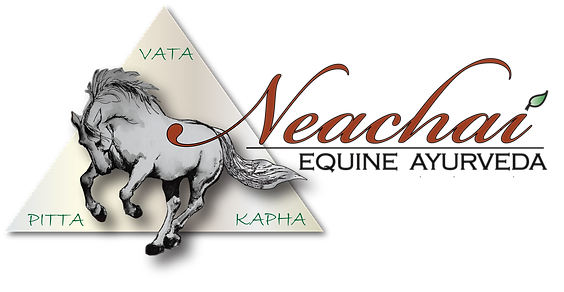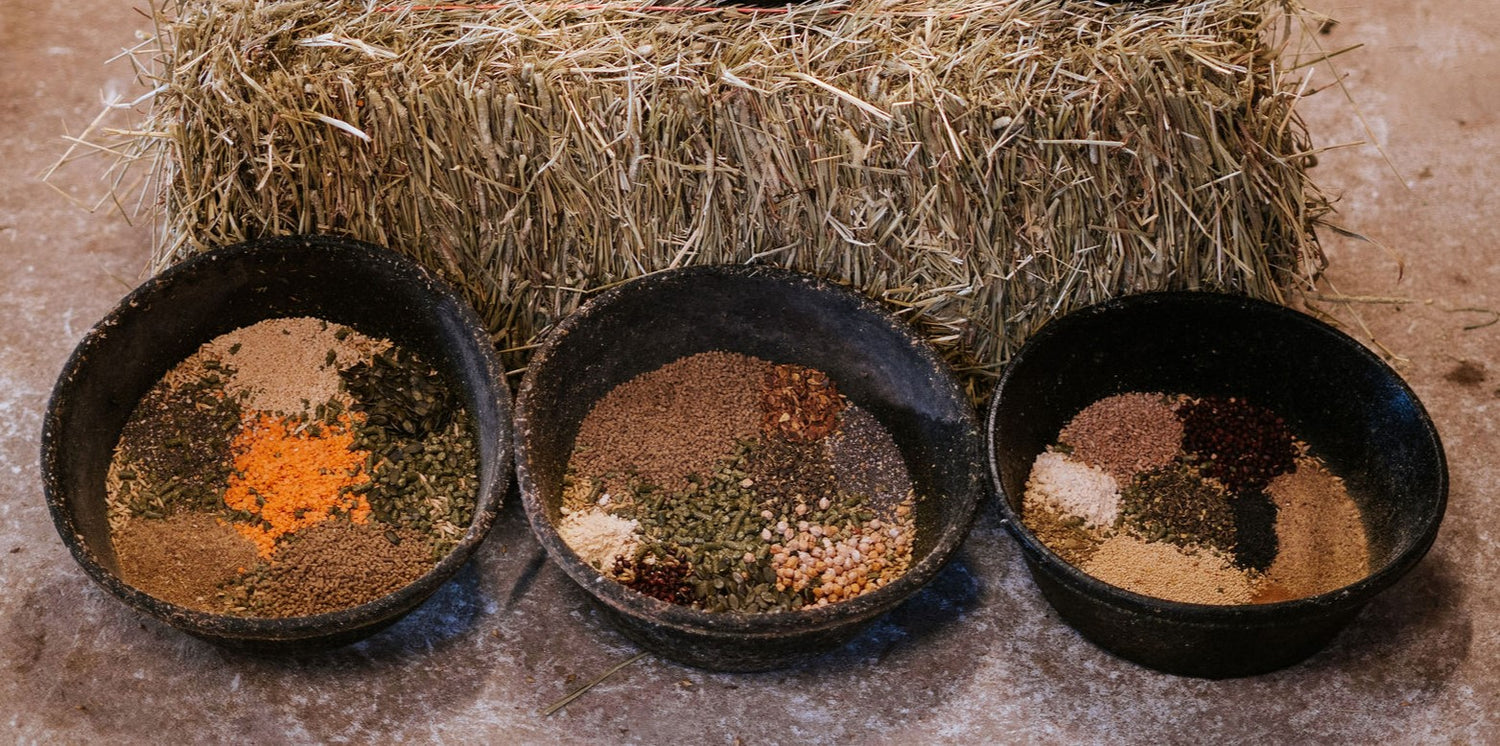about
Ayurvedic Nutrition Science
Ayurvedic Clinical Nutrition examines the complex relationship between nutrition, genetics, and health.
By studying how specific nutrients interact with individual genes, it helps tailor dietary and supplementary recommendations to optimize well-being. This innovative approach not only enhances our understanding of the root causes of various health issues but also equips individuals and equine caretakers with personalized strategies to promote health and prevent imbalances. This proactive step leads to a healthier, more vibrant life for both you and your horse.
doshas
The Role Doshas Play In Nutrition
AIR & ETHER
Vata
Vata is naturally catabolic with a variable digestive enzyme function (agni) –sweet and salty ,warm and unctuous foods are needed to produce sufficient digestive enzymes for optimal digestion. Incorrect nutrition will cause the horse to become bloated, develop gas, dry skin and constipation. Its important to provide nutrition with anabolic qualities.(Legume hay, Bermuda Grass hay)


WATER & EARTH
Kapha
Kapha is naturally anabolic with a very low digestive enzyme function –light, dry ,warm are what is needed to keep producing sufficient digestive enzymes for uptake. Cool and heavy to digest foods will clog channels further creating stagnation, malabsorption, and mucus in GI and respiratory system. Nutrition with catabolic qualities are required. (Timothy hay, Kentucky Bluegrass)
FIRE & WATER
Pitta
Pitta is highly metabolic with a very strong digestive fire and voracious appetite- bitter astringent, and cool are needed to produce digestive enzymes to support assimilation and transformation in the small intestine. The opposite qualities will create metabolic inflammation such as food allergies, diarrhea, or hot spots. Cooling foods to counter inflammation are essential for this dosha (orchard grass hay, Legume, Timothy).

neachai equine ayurveda
Understanding Ayurveda
The science of Ayurvedic nutrition further identifies the qualities of each nutritional item and its biomedical action and post digestive effect.
1. Rasa - The 6 tastes

The sweet taste is made up of earth and water elements and is cooling, heavy, and grounding. It can balance Vata and Pitta doshas, but can aggravate Kapha dosha. It nourishes the body and promotes strength, stability, and immunity.

The sour taste is made up of earth and fire elements and is heating, light, and stimulating. It can balance Vata and increase Pitta, but can aggravate Kapha. It can stimulate digestion, improve absorption of nutrients, and increase appetite.

The salty taste is made up of water and fire elements and is heating, heavy, and moistening. It can balance Vata and increase Pitta and Kapha in excess. It can stimulate digestion, improve absorption of nutrients, and enhance the flavor of food.

The pungent taste is made up of fire and air elements and is heating, light, and drying. It can balance Kapha and increase Pitta and Vata in excess. It can stimulate digestion, increase circulation, and clear congestion.

The bitter taste is made up of air and ether elements and is cooling, light, and drying. It can balance Pitta and Kapha and increase Vata in excess. It can support detoxification, improve digestion, and enhance the absorption of nutrients.

The astringent taste is made up of air and earth elements and is cooling, dry, and contracting. It can balance Pitta and Kapha and increase Vata in excess. It can support digestion, reduce inflammation, and promote healing.
2. Veerya -Potency;heating or cooling
3. Vipaka-Post Digestive effect;the effect on tissue after digestion and assimilation
This highly intelligent aspect of Nutrition is unique to Ayurveda and is the cornerstone of the lifestyle science as a whole. The completion of cellular transformation into new healthy tissue depends wholly on the inputs, digestive enzymes and biological action of the feed provided.
At Neachai we have worked closely with some of the top Ayurvedic Doctors in India and the United States to curate a biologically appropriate nutrition protocol for horses based on their constitution. This advancement is the first of its kind in equine nutrition as well as Ayurvedic medicine around the world. It forges a new path in animal health sciences in the pursuit of a prevention-based model of health care!


